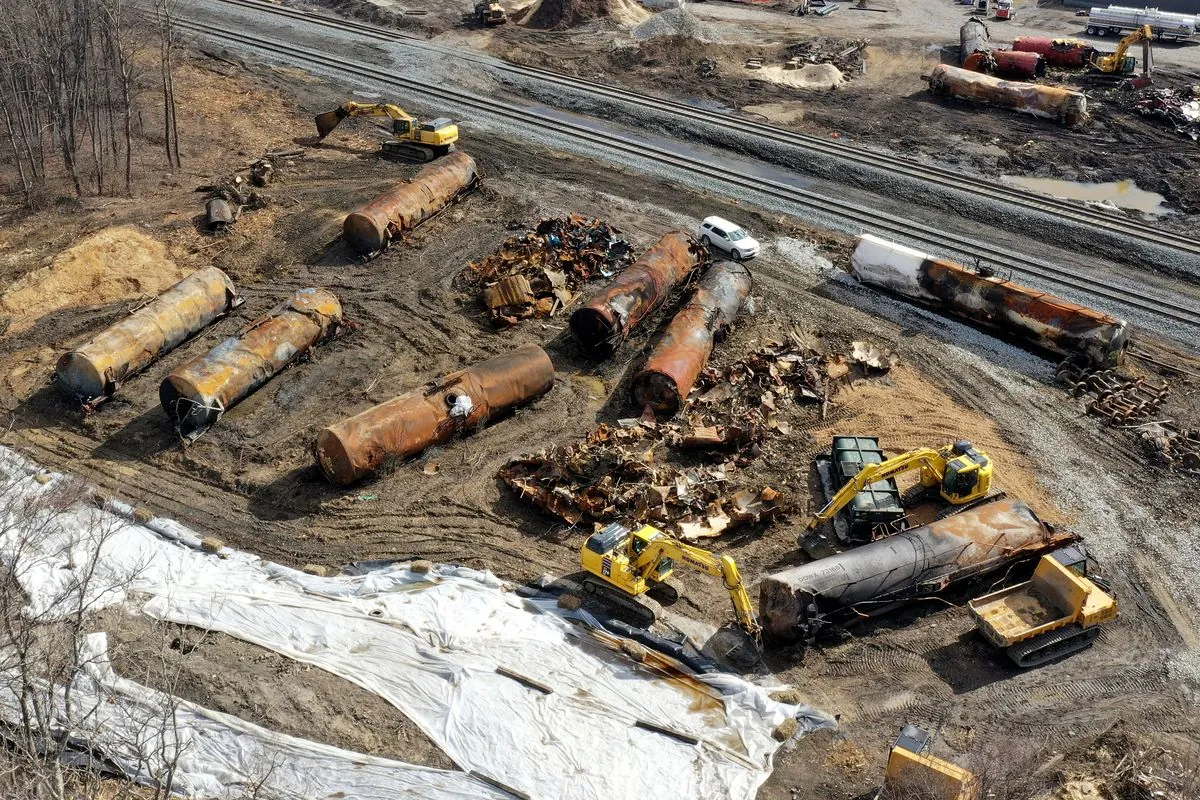Chemical Leak Near Cincinnati Prompts Evacuation, Echoes 2023 Incident
A styrene leak from a railcar near Cincinnati triggered evacuations within a half-mile radius. The incident recalls the 2023 East Palestine derailment, raising concerns about chemical transport safety.

A chemical leak from a railcar near Cincinnati, Ohio, has prompted authorities to order evacuations within a half-mile radius. The incident, occurring on September 24, 2024, involves styrene, a toxic and flammable substance used in plastic and rubber production.
Tom Ciuba, spokesperson for Central Railroad of Indiana, confirmed that the company was notified about a railcar venting styrene near Cleves. Emergency responders and environmental agencies have been mobilized to address the situation.
Styrene, first isolated in 1831, is a synthetic chemical widely used in various industries. The global styrene market, valued at approximately $31 billion in 2020, plays a significant role in manufacturing processes. However, its classification as a possible human carcinogen by the International Agency for Research on Cancer underscores the potential health risks associated with exposure.
The Hamilton County Emergency Management Agency advised immediate evacuation for anyone within the affected area, which includes a mix of businesses, homes, and undeveloped land. Residents just outside the evacuation zone were instructed to remain indoors and keep windows closed.

Lisa Whiteley, spokesperson for the Three Rivers Local School District, reported that three school buildings were evacuated and all after-school events were canceled. This precautionary measure aims to protect students and staff from potential exposure to styrene, which can cause immediate health effects such as headaches, nausea, and respiratory issues.
"Styrene is regulated as a hazardous air pollutant due to its potential health impacts. Long-term exposure can lead to more serious health problems, including organ damage."
The incident has raised concerns about chemical transport safety, particularly in light of the East Palestine train derailment that occurred 19 months ago, approximately 300 miles northeast of Cincinnati. That event led to new safety regulations and increased scrutiny of the rail industry and federal regulators.
Styrene's properties make it a challenging substance to manage in emergencies. It is slightly soluble in water but highly soluble in organic solvents, complicating containment efforts. The chemical's half-life in the atmosphere is about two days, which means environmental impacts could persist for a short period after the leak is contained.
As firefighters work to address the leak, it's worth noting that styrene can be biodegraded by certain microorganisms in soil and water. This natural process may assist in long-term environmental recovery, although immediate concerns focus on public safety and containment.
The incident highlights the ongoing challenges in transporting hazardous materials and the importance of robust emergency response protocols. As the situation develops, authorities continue to prioritize public safety while working to mitigate the environmental impact of the styrene leak.


































